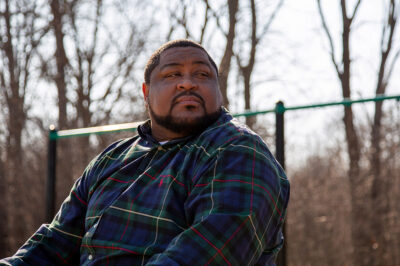ACLU Files Challenge to Library Internet Censorship In Case Fast-Tracked for Supreme Court Review
FOR IMMEDIATE RELEASENEW YORK–Acting on behalf of public libraries, library patrons and website authors nationwide, the American Civil Liberties Union today filed a major legal challenge to a federal law that forces libraries to censor constitutionally protected speech online.

Speaking at a news conference in New York, Monique Tynesha Overby, a high school sophomore from Philadelphia, said she relies on public libraries for Internet access to help her with homework projects on health and cultural issues. She and her aunt are plaintiffs in the ACLU lawsuit.
“The government is choking off the free flow of information on the Internet to the library patrons who need it the most,” said Ann Beeson, a member of the ACLU legal team that filed the challenge today in a U.S. District Court in Philadelphia.
The ACLU’s clients include public libraries from Portland, Oregon to Portland, Maine; a 15-year-old girl and her aunt, both of Philadelphia, who do not have Internet access at home; two candidates for Congress whose websites were blocked; Planetout.com, a leading website for gay lesbian, bisexual and transgendered persons; and Planned Parenthood Federation of America, whose website provides reproductive healthcare information.
Under the law, passed by Congress last December, a three-judge panel appointed by the Third Circuit Court of Appeals in Philadelphia will hear the case; any appeal of the panel’s decision will go straight to the Supreme Court, which is required to hear challenges to this law.
There are more than 16,000 public libraries nationwide, and 95 percent of them currently provide Internet access for their patrons. The Children’s Internet Protection Act, known as “CHIPA,” requires libraries that participate in certain federal programs to install “technology protection measures” on all of their Internet access terminals, regardless of whether federal programs paid for the terminals or Internet connections.
In urging against passage of the law, the ACLU argued that mandatory library blocking would widen the “digital divide” that already exists between the “haves” — those who can afford Internet access in the home — and the “have-nots”– low-income people, minorities, and those who live in rural areas where reliable Internet access is not always available.
And the digital divide is growing, according to the National Telecommunications and Information Administration. In a recent report, the government agency said that whites are more likely to have access to the Internet from home than blacks or Latinos have from any location.

Carol Williams, whose niece and grandchildren use Philadelphia public libraries for Internet research, said that her family cannot afford Internet access at home and do not want to be censored at the library.
Beeson noted that Congress approved the censorship law even after its own 18-member panel set up to study ways to protect children online rejected the idea because of the risk that “protected, harmless, or innocent speech would be accidentally or inappropriately blocked.” The chairman of the panel, Donald Telage, told the Wall Street Journal last October that “not even the most-conservative members of the commission felt that [blocking] was the road to go down.”
Nonetheless, libraries must now install “blocking technology measures” or forfeit much-needed federal funds. The law defines such measures as “a specific technology that blocks or filters Internet access” such as the commercially available blocking programs X-Stop and CyberPatrol.
Yet as the ACLU complaint points out, even the makers of the blocking programs touted by the law’s proponents do not claim to block only material that is “obscene, child pornography,” or “harmful to minors,” the kind of websites the law targets.
In addition, the programs routinely and inexplicably block sites that clearly do not fall under the categories proscribed by the law, such as a map of Disney World, the U.S. Army Corps of Engineers, a list of all of the passengers on the Mayflower, and Seventeen magazine.
“The flaws in blocking programs are not a matter of individual flaws in individual products; they are inevitable given the task and the limitations of the technology,” said Chris Hansen, an ACLU Senior Staff Attorney. “Everyone from a Congressional panel to Consumer Reports to parents have found blocking programs to be unworkable.”
Long before blocking programs ever became an issue, libraries have made it their mission to help people find exactly the information they need, whether it is online or on paper. But “the law makes it impossible for us to do our jobs,” said Ginnie Cooper, Library Director at the Multnomah County Library in Portland, Oregon, the lead plaintiff in the lawsuit.
The American Library Association today also filed a challenge to the law before the same Philadelphia court. The cases will likely be consolidated and heard concurrently, the ACLU said.
Attorneys in the ACLU case are Beeson, Hansen and Meera Deo of the national ACLU; Stefan Presser of the ACLU of Pennsylvania; David Sobel of the Electronic Privacy Information Center; Lee Tien of the Electronic Frontier Foundation; Chuck Sims, Frank Scibilia, Stefanie Krause and Andy Lee, all volunteer attorneys with the law firm Proskauer Rose in New York City; and Tom Sponsler, Multnomah County Attorney.
A special feature on the ACLU case, including links to legal documents, special reports and other background, is online at /privacy/speech/15611res20020531.html
Multnomah County Library et al., vs. United States of America, et al.
The ACLU Challenge to Government-Mandated Library Censorship
The Plaintiffs
Libraries and Library Associations (7)
Multnomah County Library (Oregon), http://www.multcolib.org
Connecticut Library Association, http://www.lib.uconn.edu/cla/
Maine Library Association
Santa Cruz Public Library Joint Powers Authority
South Central Library System (Wisconsin)
Westchester Library System, http://www.wls.lib.ny.us
Wisconsin Library Association
Library Patrons (8)
Mark Brown, Philadelphia, PA
Emma Rood, Portland, OR
Marnique Overby, Philadelphia, PA
Carol Williams, Philadelphia, PA
Sharon Dixon, Philadelphia, PA
Quiana Williams, Philadelphia, PA 19143
Bill Rosenbaum, Winthrop, ME
Jim Geringer, Portland, OR
Website Authors (9)
AfraidtoAsk.com, www.afraidtoask.com
Alan Guttmacher Institute, www.agi-usa.org
Out in America, www.outinamerica.com
Wayne L. Parker, http://members.aol.com/parker4congress
PlanetOut.com, www.planetout.com
Planned Parenthood Federation of America, www.ppfa.org
Jeffery Pollock, www.pollock4congress.com
Safersex.org, www.safersex.org
The Naturist Action Committee (of The Naturist Society), www.nac.oshkosh.net
Stay Informed
Sign up to be the first to hear about how to take action.





